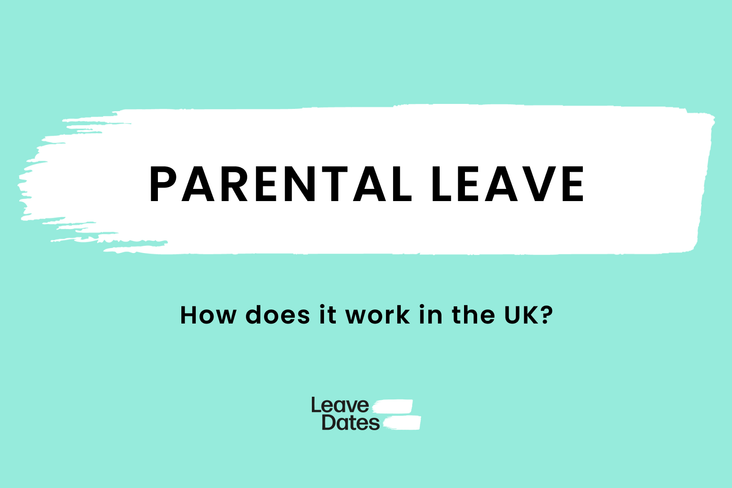In the intricate tapestry of work and life, there are inevitably moments when personal and professional responsibilities collide. When this happens, compassionate leave is a critical support mechanism intended to help employees deal with personal tragedies and upsetting situations that demand their time and focus.
For employers and employees, understanding your obligations/rights in regard to compassionate leave is paramount to building and maintaining happy and healthy workplaces.
Table of contents
- Introduction
- What is compassionate leave?
- Rights in the UK
- What counts as an emergency?
- Beyond the bare minimum
- Barriers to uptake
- Impact of compassionate leave on work and mental health
- Conclusion
This article will illuminate the various facets of compassionate leave, giving insights into the legal framework (in the UK), eligibility and the scope of employer policies. The background to this is the delicate balance between work and personal life, and we’ll highlight some examples that show the essentially human nature of this kind of leave.
It will also serve as a guide for employees and employers, equipping you with the knowledge and tools to navigate difficult conversations, understand your rights and obligations and effectively juggle responsibilities during times of personal crisis.
What is compassionate/ dependent leave?
Compassionate (sometimes known as dependent) leave involves a temporary departure from work obligations to address a personal crisis.
Often, it’s to deal with an unexpected or emergency situation and support another individual, typically a family member or dependant within your household.
From the employer’s perspective, this sudden hiatus may raise concerns about productivity and performance, but studies have shown that, far from having a negative impact, organisations that embrace a compassionate approach see positive long-term effects.
Rights in the UK
All employees in the UK have a right to time off to deal with emergencies involving their dependants, regardless of their length of service.
There is technically no limit on how long you can take off, as the amount of time required to deal with an emergency will obviously vary hugely depending on the situation, but the duration should be ‘reasonable’ and proportionate to the circumstances.
Typically, it might be a couple of days while you address the immediate emergency and/or make arrangements to deal with any longer-term or ongoing issues.
There are no limits to how many times you can take this kind of leave. You must tell your employer about the situation and how much time off you think you’ll need as soon as possible, so that arrangements can be made. You don’t have to do this in writing and you don’t need to provide written proof.
Depending on your employer and the situation, you may be asked to take a different form of leave – i.e. parental, carer’s leave, or annual leave – if the situation is ongoing.
While all employees are entitled to compassionate leave, there is no requirement for it to be paid. Whether or not you’re paid, and for how long, will be at the discretion of your employer and will depend on what policy they adopt.
What counts as an emergency?
For a situation to be considered an emergency, you cannot have had prior knowledge of it – eg a pre-arranged doctor’s appointment. Generally, we’re talking about things like:
- A sudden illness (mental or physical, and including a sudden worsening of an existing condition), injury or assault, where you need to provide care or comfort to a dependent
- Deaths/funerals
- A dependant goes into labour and you need to take them to the hospital (after the birth of a child, you would need to be the parent to take time off and that would be as parental leave)
- Disruption of care – eg, a childminder/carer does not turn up, or your child’s nursery is unexpectedly closed
- A child is involved in an incident at school, or a spouse is mugged
Below are some examples of when compassionate leave/leave to care for a dependent would apply:
Example 1: your child is sent home ill from school and you need to leave work early to care for them and take them to an emergency doctor’s appointment.
Example 2: your partner is diagnosed with a critical illness and is unable to look after themselves/the family. You need to take time off to take on childcare responsibilities and care for your unwell partner at home while they receive treatment.
Example 3: your elderly neighbour falls and breaks their leg; they live alone and need help getting medical assistance.
Example 4: someone in your immediate or extended family dies. You need time off to grieve and deal with practical issues such as funeral arrangements and death administration.
Beyond the bare minimum
In the UK, there is no legal requirement for compassionate leave to be extended beyond dependants. If the situation doesn’t involve a dependent, it doesn’t technically qualify, and you would be reliant on it being covered within your employer’s compassionate leave policy.
Clearly, there are some grey areas here, but it’s down to the individual employer how generous they want to be in their interpretation of the law and in extended compassionate leave policies.
For example, some might choose to allow time off to take a pet to the vet, or accompany a sick friend to a hospital appointment, neither of which would technically be eligible for this kind of leave under UK law.
In the UK, the standard offering is 3 days’ paid compassionate leave annually, though this varies widely across industries – healthcare is generally the most accommodating, but still only offering an average of 5 days’ paid leave. Though it’s by no means a hugely generous policy, it doesn’t go unnoticed by staff – a survey in 2022 found that 77% of those in the healthcare industry felt supported by their employer and 78.4% felt that their workplace was compassionate. By comparison, agriculture, tourism, retail and banking are the worst industries for compassionate leave in the UK, with much of their workforces feeling uncomfortable asking for time off.
In America, the landscape is a little more competitive, mainly due to the thriving tech industry competing for the top talent.
Meta, for example, has famously generous leave policies, allowing employees up to 20 days of paid leave if they lose an immediate family member, and up to six weeks to care for a seriously ill relative.
The tech industry in general – with exemplars including Apple, Squarespace, and Netflix – is leading the way here, setting a trend for flexible paid leave policies across a broad spectrum, championing a family-friendly and compassionate culture.
No surprises then that the industry attracts talent from across the world, and consistently appeals to investors.
Barriers to uptake
While a sudden period of leave is bound to cause some disruption, this is likely to be short-term. A well-functioning workplace with strong communication and processes, where there is mutual respect and goodwill among employees, should be able to cope with this.
With a few exceptions, no company should be operating on such a knife edge that one person’s sudden absence causes everything to fall apart.
If this is the case, it’s not compassionate leave that’s the problem but a general lack of robustness and resilience related to the workload and staffing level.
Impact of compassionate leave on work and mental health
Compassionate leave is an important part of the leave landscape, and the extent and application of leave policy in this area will say a lot about an employer’s values, as so much is at their discretion.
Paid leave in particular demonstrates an employer’s respect for their employees as multifaceted human beings with personal as well as professional lives, and shows that they care about and will prioritise their mental health and wellbeing.
Compassionate leave influences work dynamics and the mental health of employees in various nuanced ways. As younger generations with different priorities and expectations enter the workforce, it’s important that leave policies are aligned with these.
For Generations Z and younger, the issue seems to be deeply intertwined with a desire for authenticity and purpose in their professional lives. Employers who champion compassionate leave will better appeal to the values of a generation seeking meaning and connection by acknowledging the need for a healthy work–life balance and building trust.
The mental health implications of compassionate leave extend beyond the immediate period of absence, as grief, coping with illness and ongoing management of family crises can have a lasting impact on an individual’s mental wellbeing.
The sorts of situations that necessitate an emergency departure from work are rarely done and dusted in a couple of days, with all concerned fully recovered physically, mentally and emotionally.
Employers play a crucial role in shaping the mental health landscape of their workforce in general, and this responsibility is heightened in the issue of compassionate leave – a time when employees are at their most vulnerable, and most reliant on their employer for support. What you do here could make or break your relationship.
As workplaces evolve to meet the changing expectations of younger generations, and indeed of older ones who are reassessing in a more fluid and complex global and economic landscape, the approach to mental health support must be comprehensive and human-focused.
This includes employee assistance programmes, destigmatising conversations around mental health and other previously taboo topics (eg menstrual and menopause leave), and nurturing open dialogue about wellbeing.
Empty talk and will fast become evident, and compassionate leave policies are an ideal way to ‘walk the walk’.
Conclusion
Creating a compassionate workplace is a collaborative effort, and requires everyone on all sides to engage and interact at a human level, leaving to one side thoughts of deadlines and profit margins to recognise that we are all more than our jobs and we just never know what’s round the corner.
A compassionate employer that values wellbeing as highly as productivity is a huge draw to a workforce that is increasingly looking beyond their professional life for fulfilment and purpose and have been shown to be less loyal to employers who don’t meet their needs.
The ex-COO of what was then Facebook, Sheryl Sandberg, explained the motivations for the company’s generosity and compassion for its employees when it comes to leave:
“Companies that stand by the people who work for them do the right thing and the smart thing – it helps them serve their mission, live their values, and improve their bottom line by increasing the loyalty and performance of their workforce.”
Wise words indeed. And this raises a question and a challenge for UK employers: how compassionate do you want to be? Are you a ‘bare minimum’ employer, or an ‘above and beyond’ one?





